Hiroyuki Miura (PLUSVoice, Inc. President and Representative Director)| Realize the “true communication”
2025.07.08
Sign language entertainer/actor
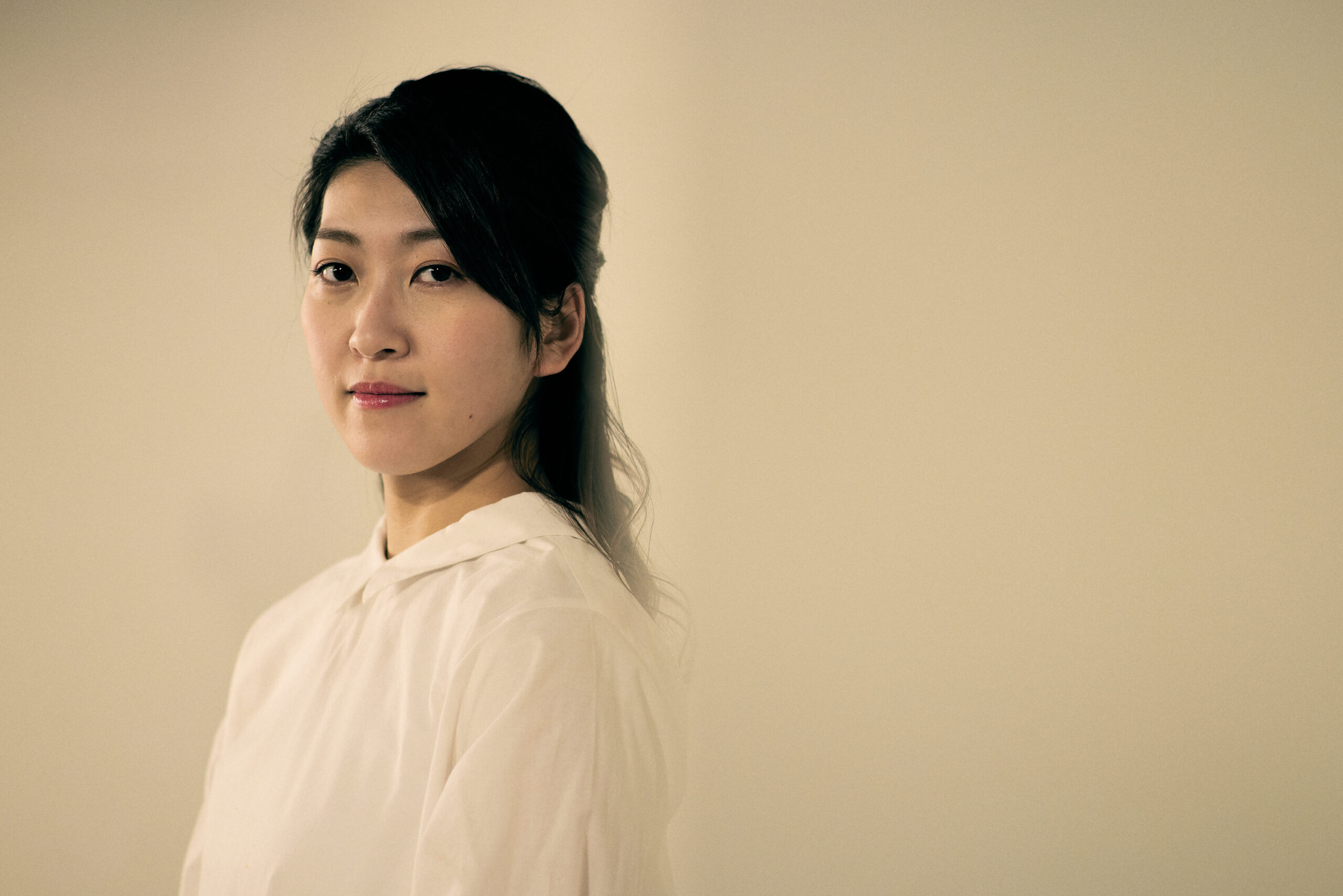
2024.03.04
If you have ever been exposed to sign language, you must have seen her at least once.
Drama, stage, performance, interpretation, international exchange, event….
Eri Nasu works with a strong sense of mission and passionate emotions,
she is not categorized by a set framework.
Her palms are overflowing with colorful ideas and hopes.
目次
-What kind of work do you do as a “sign language entertainer”?
Nasu-san In a word, I make a living by “sign language expression”. I add sign language to video images and subtitles. Perform stage and theater performances with sign language. Creating a place where those who can hear and those who cannot hear can communicate with each other. What all of them have in common is to “create a place where everyone can enjoy themselves with sign language”. I also perform, plan, interpret, and perform in many other ways, but I call myself a “sign language entertainer” because I include all of these activities. I decided to call myself that.
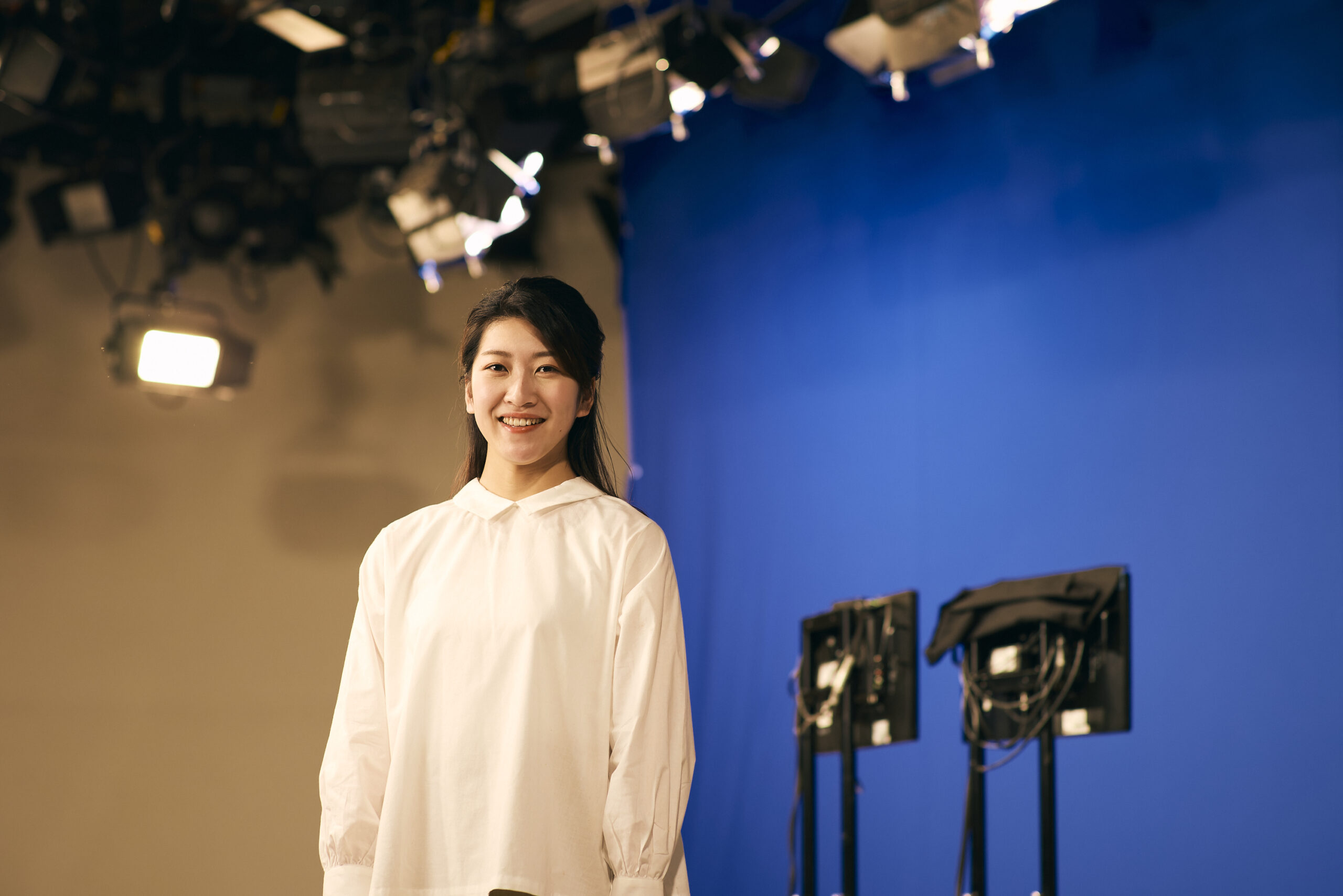
-What made you start working as a “sign language entertainer”?
Nasu-san There were two triggers. One was a program on cooking with YouTuber Fishers. Deaf people and hearing people got together and communicated with each other using only gestures. They chose the ingredients, explained how to make the dish, went shopping, and actually cooked the dish…all of these movements were done together. In this way, it is not always easy to communicate with people. But I felt that the interaction was interesting and the audience enjoyed it. That experience made me realize that there are elements of entertainment that can be created using sign language. That is how I came to feel that I would like to share my experience with the world.
Another experience was performing VV (Visual Vernacular*) at a youth event of the World Federation of the Deaf. This led to requests to perform for more VV. That was the beginning of my interest in sign language as well as original expressions that could be conveyed more visually.
*Visual vernacular: A performance that expresses visually, using a method of conveying shapes in a pictorial way (CL), which is unique to sign language and different from gestures. CL has many elements in common with other countries and can be enjoyed even by those who do not understand sign language, as it is expressed visually without words.
– What can you tell us about VV?
Nasu-san VV is a type of performance called Deaf Art. It is based on a more visual expression that anyone in the world can see. For example, the Japanese sign language for “Tokyo” (make the thumb and index finger of both hands form the shape of [le] and raise them upward twice). For those who don’t know it, it is difficult to understand. How can we express “Tokyo” in a way that can be understood? How can we visually express something like the Sky Tree or something that says “This is Tokyo! “
When I was in Europe, I saw a VV act at a bar at night. and they would do an impromptu VV. It was very interesting. Deaf art was originally intended to express the feelings of the deaf, including how they feel, rather than to convey realism or information.It is everything that springs from the life, experiences, upbringing, and many other such things of the Deaf. It is an expression that comes from discrimination, suffering, and life experiences. I think people who grew up with sign language have a unique way of expressing themselves. I guess it is similar to singing, for the hearing person.
-There is a VV event in Washington this May and you will be performing,right?
Nasu-san I’m extremely nervous right now… (laughs)! I am good at realistic expressions of death and war. But in the U.S., there are strict restrictions on events in which children can participate, and there are a lot of things that are not allowed, such as images in which blood is spilled. They don’t want me to use blood in my VVs, so I had to change the content a little. I think it should be a little brighter, not directly related to death or something, and a little blurred. I’m having a hard time with this one because I’ve been blocked from doing something I’m good at (laughs).
”No more Hiroshima” Visual Vernacular
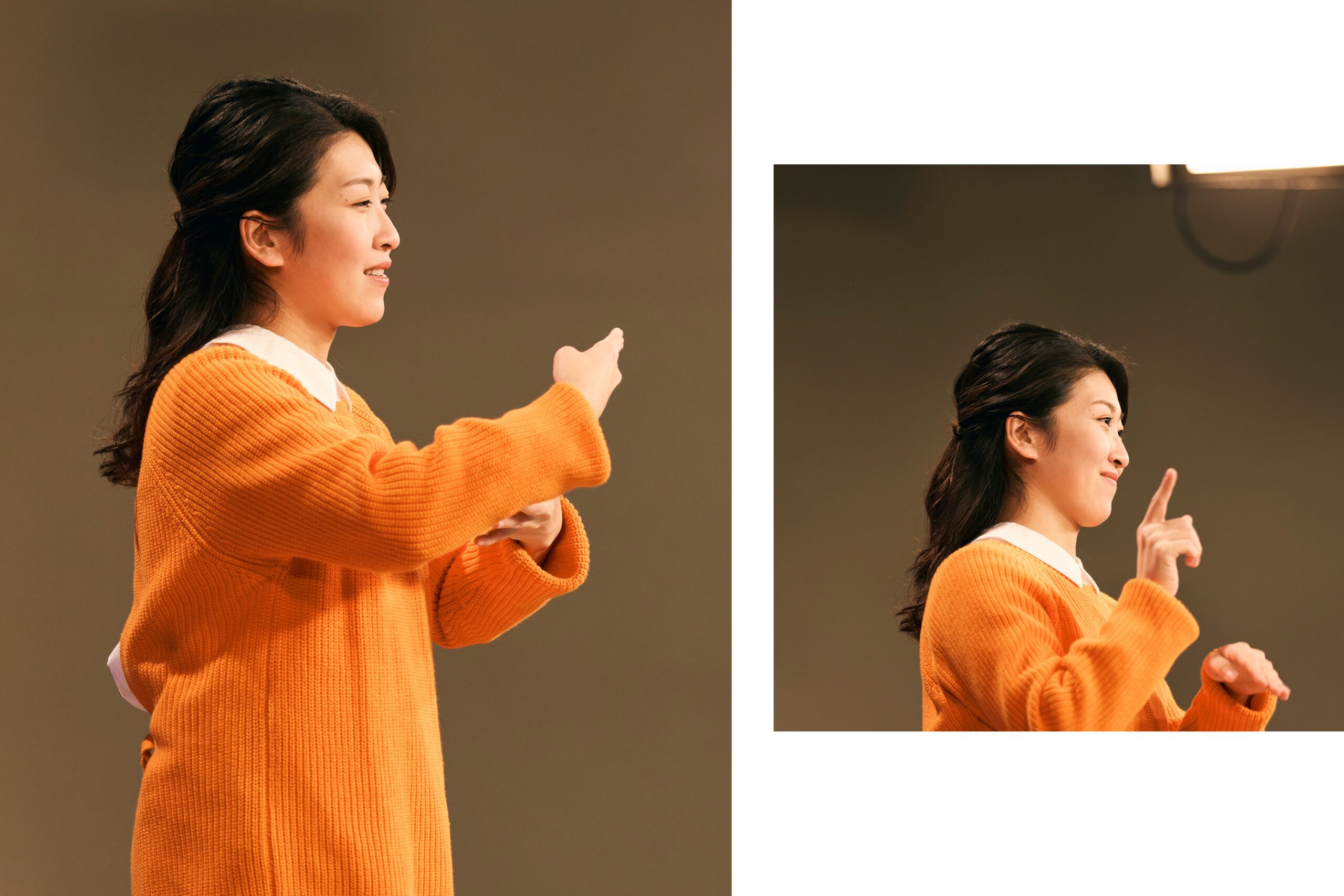
-I often see you on TV, but you also perform on stage, don’t you?
Nasu-san It is quite difficult for a deaf person to watch a performance by a hearing person while reading the script and subtitles. If it is a sign language stage, they can enjoy it in real time at the same time. Also, there are hearing people who are studying sign language. For example, if you are studying English, you may learn by watching and listening to English plays, and in the same way, sign language plays can also be a learning experience for those who are studying sign language. I want to promote understanding of the Deaf and sign language, and I want to increase the opportunities for the Deaf to see the arts. Those two things are the reason why I take part of the stage.
Some of the Deaf people around me grew up being told in the past that they were not allowed to use sign language. Through art, I would like to make people aware of the appeal of sign language itself once again, and I would like to promote it to more and more people.
-The recent NHK broadcast of “Sign Language Drama! A Dream of a Summer Night “* was enjoyed by sign language users and non-sign language users alike. What were some of the innovations that went into it?
Nasu-san First, the Deaf performers gathered together and translated the script, which had been checked and produced by the Deaf/Hearing production team, into sign language. If there was anything that did not fit, we discussed what kind of sign language would fit… Anyway, we first decided on the sign language expression among the Deaf performers. After that, we began rehearsals with the hearing people and tried to match the lines. Then we started rehearsals with the hearing people and tried to match the lines, and we found that we needed to make adjustments, such as “the timing is unexpectedly fast,” “the sign language is slow,” or “there is a gap when I want to stop here. In the rehearsals, we watched the movements of the other performers, and we looked at, felt, and talked about each other’s movements. It was a process of creating together.
The rhythm and atmosphere of a hearing person’s lines. Deaf people naturally know. It’s like, “It’s time to come. The listeners, too, seemed to naturally pick up the rhythm by watching the sign language…they became accustomed to each other’s rhythm as they breathed in unison. They got used to each other’s rhythm as they breathed together.
-The actors all breathed perfectly together.
Nasu-san Like myself, many of my co-stars in this project valued “blank spaces.” We don’t decide too much in advance, but rather, match our up as we are being performed. When we all tried to confirm details in advance, we said, “There is no need. Let’s respect each other’s intentions as they emerge during the performance.” We decided to make it on site, eye to eye.
*Sign language play! A Summer Night’s Dream: A sign language play of Shakespeare’s romantic comedy “A Summer Night’s Dream” broadcast by NHK, performed by both deaf and hearing actors. This special drama is a masterpiece that can be enjoyed in both sign language and Japanese. Nasu-san passionately played the role of Hermia, who elopes into the forest at night.
A behind-the-scenes broadcast of the drama will be aired on 3/6 (Wed) for the first part and 3/13 (Wed) for the second part, and a re-broadcast of the full drama is scheduled for 3/16 (Sat). If you missed the past broadcasts, this is a rare opportunity to see the drama from a rare behind-the-scenes perspective…don’t miss it!
NHK official website: https://www.nhk.jp/p/ts/BXXQ5J7YNL/
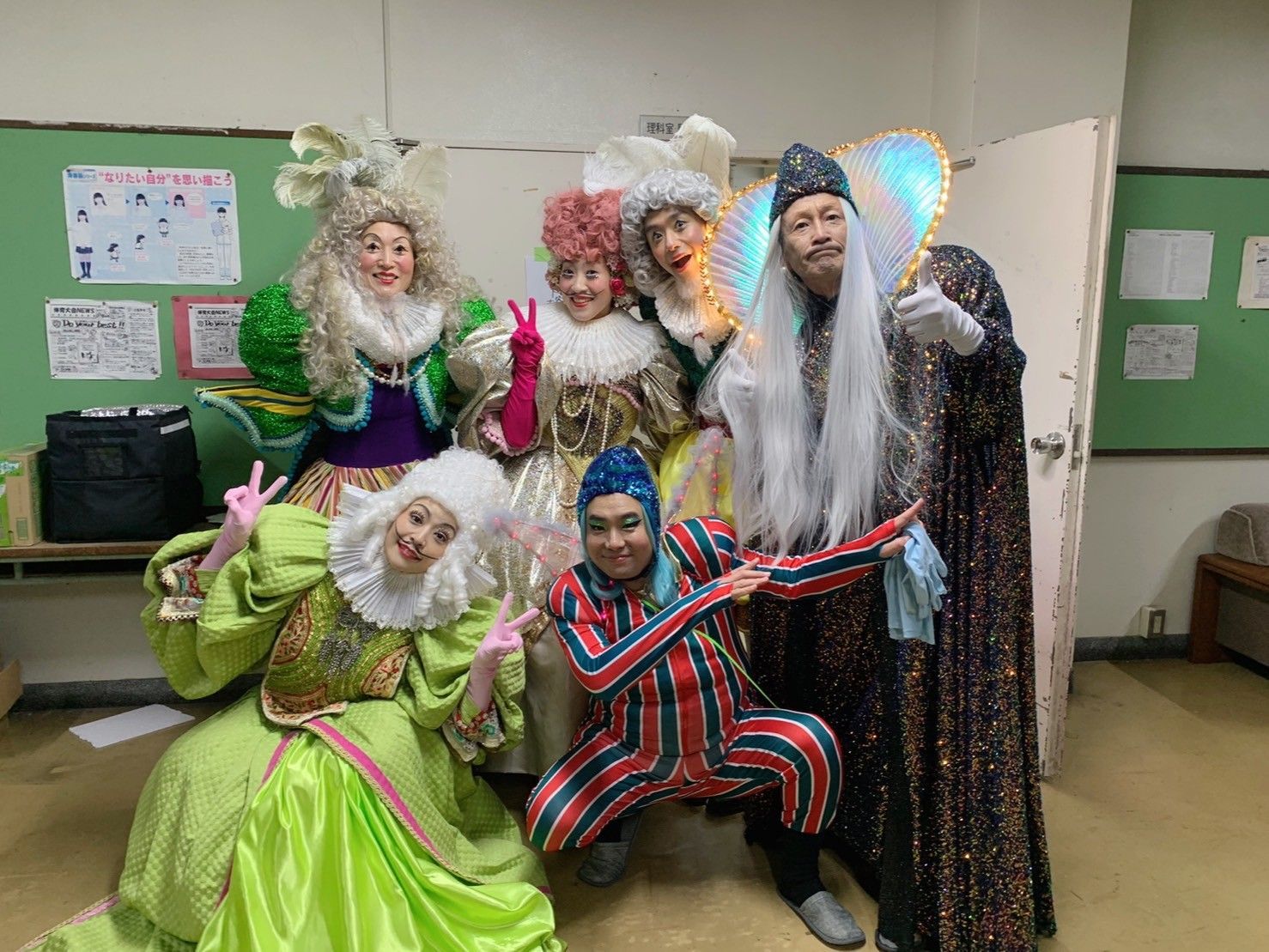
-I understand that you are the first Japanese to participate in “Frontrunnners”, a leadership training program for Deaf youth around the world.
Nasu-san One of the main goals of my activities is to create a society where the deaf and the hearing are equal. When a hearing person wants to see a movie, he/she can go to the theater as soon as he/she thinks of it. Deaf people, on the other hand, cannot go to a movie as soon as they think of it. Even if there are subtitles, the number of screenings is limited, so they cannot go to a movie because they cannot make a schedule. All these things are equal, equal life. What are we going to do to realize this? First of all, I think it is to expand the understanding of sign language. I also want to change the view that Deaf people are pitiful.
For example, when I told people that I am Deaf, I used to make a “cross” with both hands to indicate that I cannot hear. But that is a negative expression, as if I was saying, “It’s bad that I can’t hear.” But in the FrontRunners class, I was taught that it is better not to use such expressions that make it seem that the Deaf are something bad. I was taught that we Japanese often unconsciously act in ways that diminish the value of the Deaf themselves, and that this should be changed. It became very clear to me and I reflected on it. Since then, I have been conscious of replacing expressions such as “deaf” and so on.
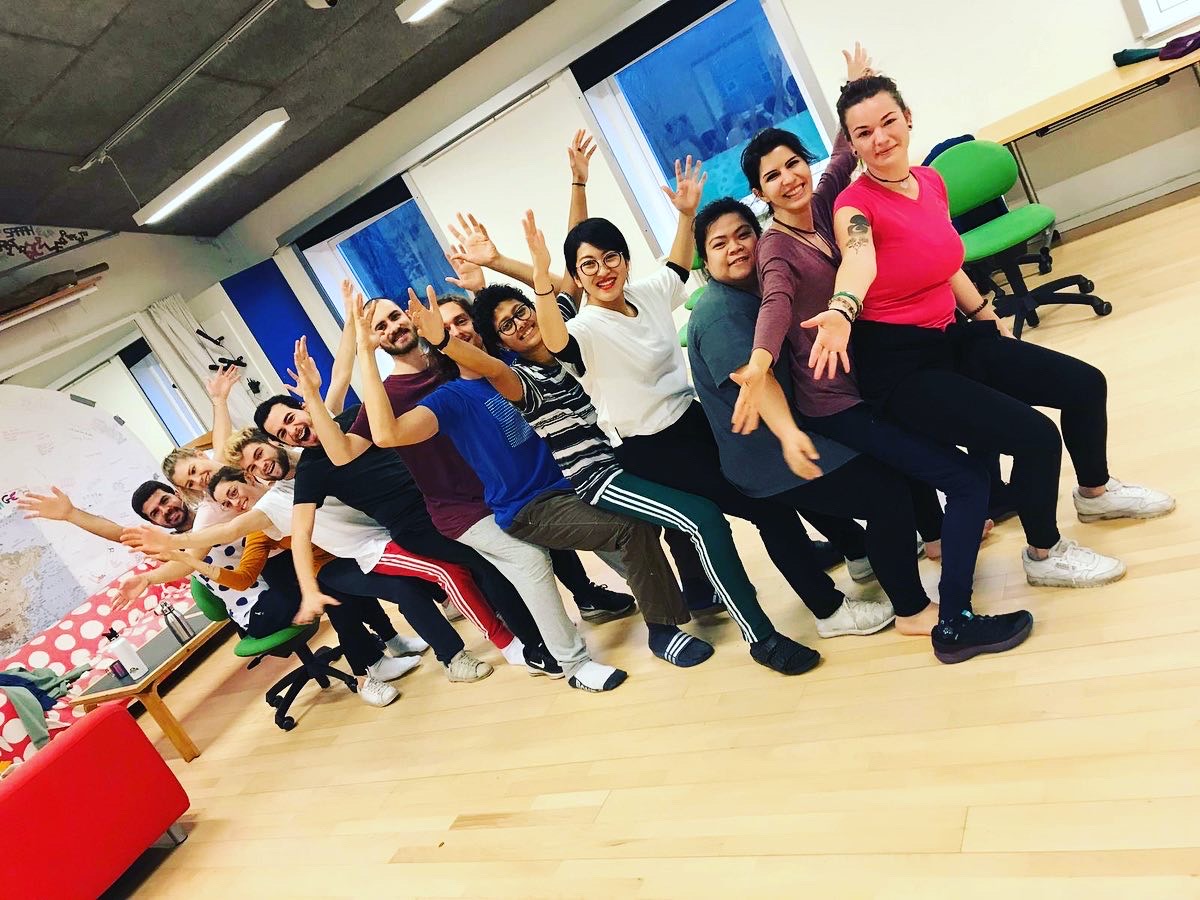
-Does your participation in this program have a significant impact on your current activities?
Nasu-san Yes, one of the big things I learned was “lobbying”. I call it “lobbying,” but in essence it is negotiating with the people around you to realize what you want to achieve. I try to convey the benefits of the realization of the project, understand what the concerns are in terms of budget, etc., and if it seems difficult, I try to propose an alternative plan. Explain to people who don’t understand what you are trying to do so that they can understand you well. I was able to learn how to explain things in a way that would change their thinking and decisions at FrontRunners.
I learned how to explain to people who do not understand how to change their ideas and decisions. I think there are still many people, including in the media, who have that kind of attitude. I want to change that. I feel that it is important to negotiate strategically with the media using sign language in order to achieve an equal society, for example, by adjusting the expression of the media.
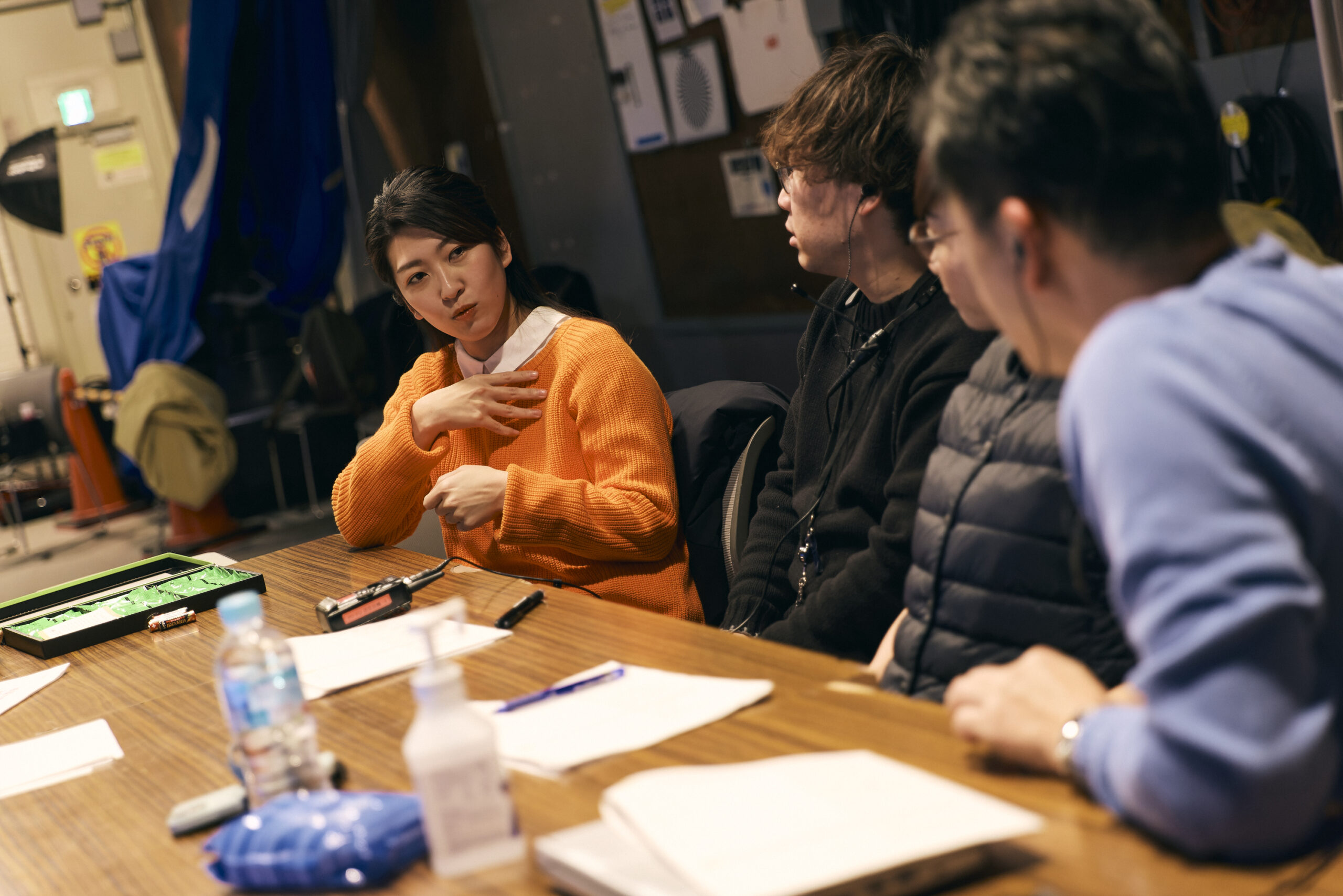
-I heard that you like Vietnam and often go there. What made you fall in love with it?
Nasu-san When I was 20 years old, I was working part-time at a restaurant, and a girl who came in at the same time as me was Vietnamese. I had just wanted to travel to Paris and had just given up because of the terrorist attacks. I was communicating with her through gestures and written communication, and she said to me, “Come to Vietnam!” I had no knowledge of Vietnam, but I decided to go. Once I went there, I found it very interesting and was instantly hooked.
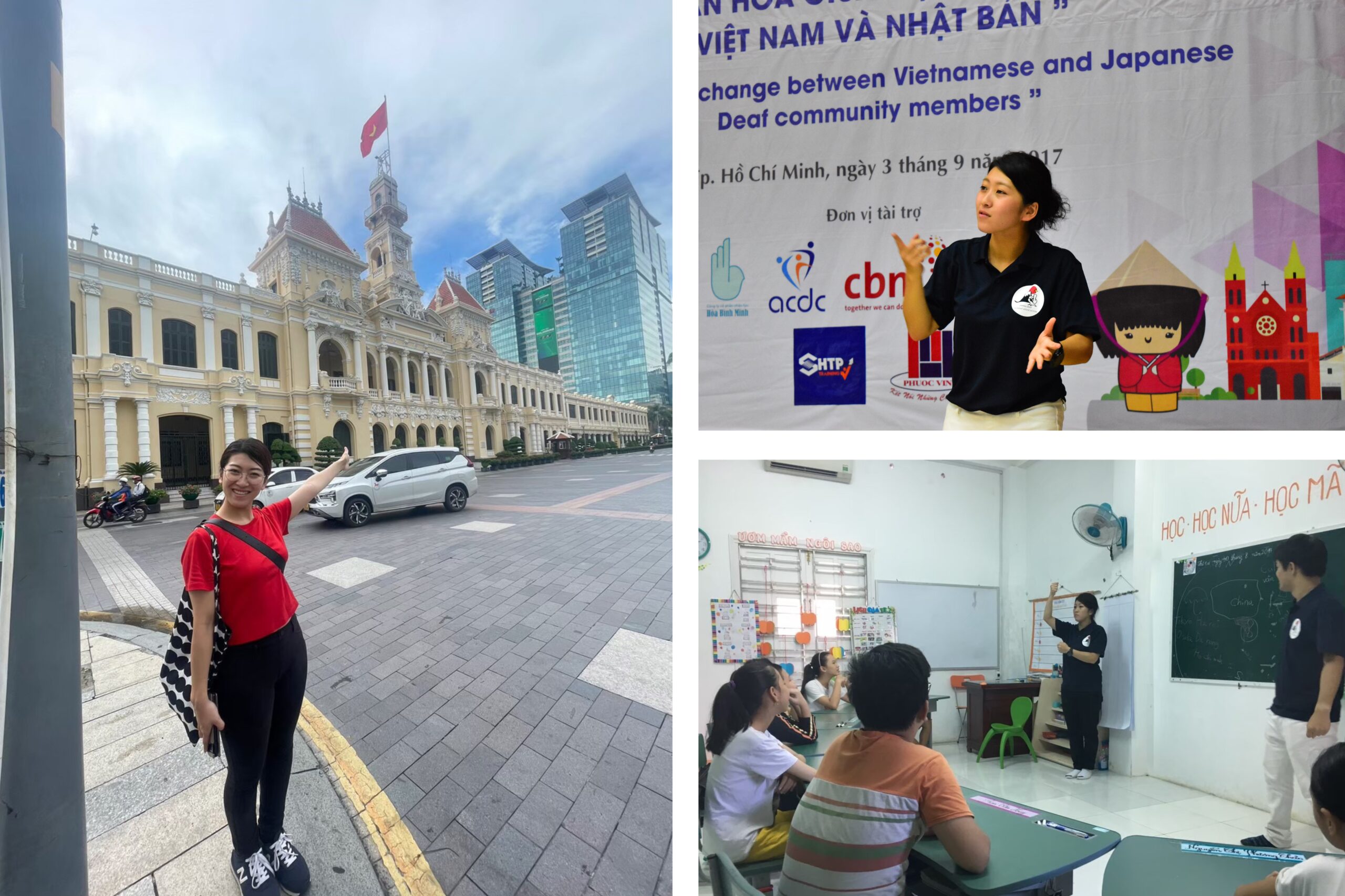
-What attracts you to the company?
Nasu-san The food is good, and the people are nice. What is interesting is that the Deaf people are united and tight knit. Even people who are not directly related to each other, such as “an acquaintance of an acquaintance,” immediately get in touch with other Deaf people and connect with each other. Of course there are family ties, but the social ties are really strong. It is truly a strong “community.”
In Vietnam, if you don’t have an attitude of trying to integrate into the community, you tend not to be accepted. For example, if you are invited to a meal and you don’t eat what is served, you are not welcome. There is something called ballot, which is duck eggs just before they hatch, and you crack open the shell and eat the contents, and they say it’s recommended…. I was pretty tight inside, but I did eat it. I was thinking, “Will it be okay? I thought to myself, Eat all the way down to the bones” (laughs).
But the important thing is not to be too accommodating. I say what is uncomfortable for me as a Japanese, and I also say what is uncomfortable for me as a person. As a Japanese, people think I am rich, and ask me to buy them a meal! But you need to ask them why.
I think it is important to have a solid dialogue with them as equals, exchanging values, rather than just paying as we are told.
-You also speak international sign language, but how many sign languages can you use?
Nasu-san The levels vary… (think about it for a moment) Japanese Sign Language, Japanese, English, Vietnamese, Vietnamese Sign Language, Italian Sign Language, Danish Sign Language, French Sign Language, Korean Sign Language, Korean Language, American Sign Language, Thai Sign Language, Singapore Sign Language, Malaysian Sign Language, …then Laotian Sign Language, Cambodian Sign Language I wonder if they will come in… Taiwanese Sign Language will be there too.
-I’m afraid! How did you learn so many languages?
Nasu-san Perhaps I have a stronger desire to “communicate in my own words” than others. It is not easy to learn if you have that desire…but I thought that international conversational and dialogue skills are necessary to become a person who can make an impact on society.
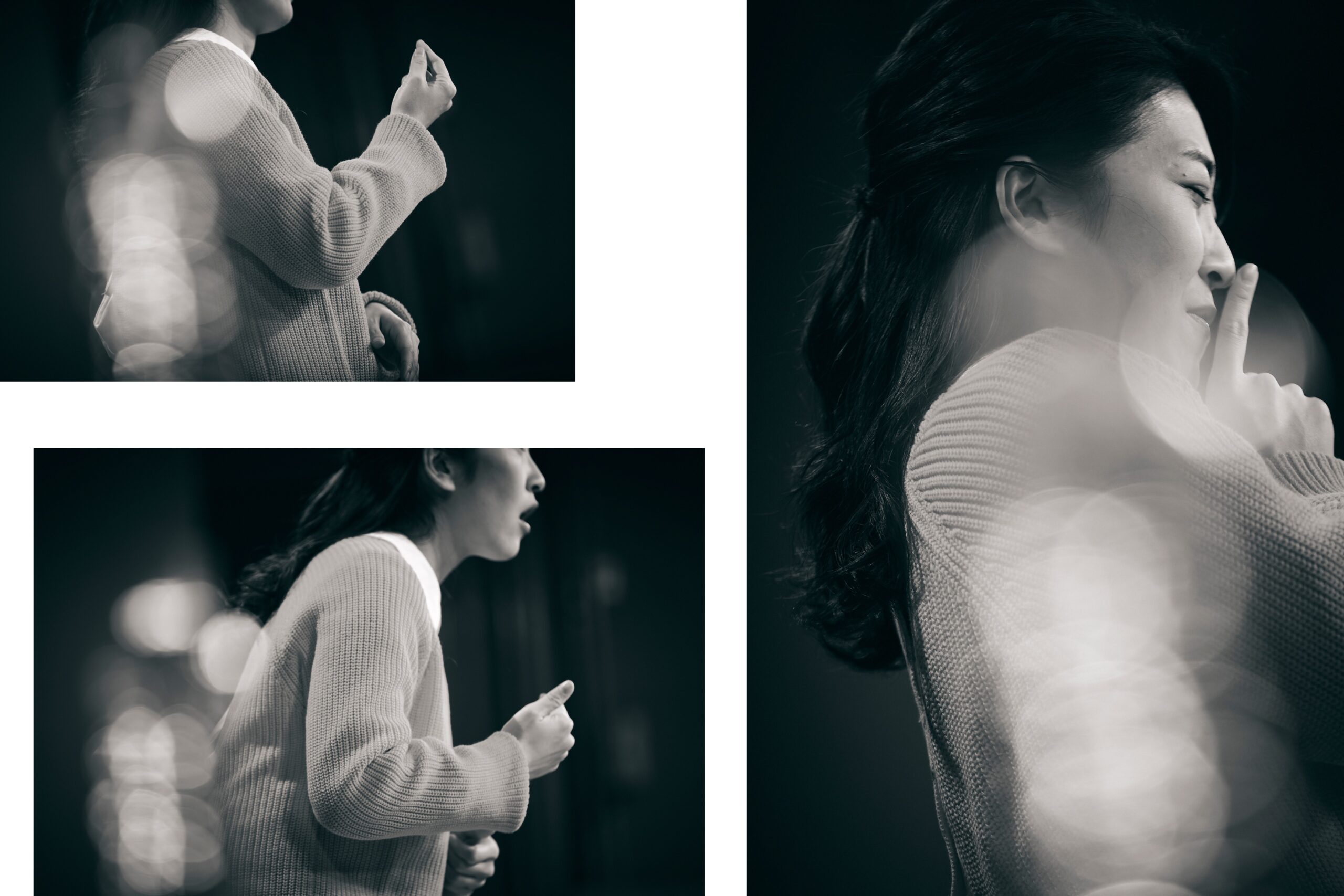
-What do you expect from the Tokyo 2025 Deaflympics?
Nasu-san One is to improve the status of sign language interpreters. They are an important link between the hearing and the Deaf. For this reason, I hope that the Signed Language Act will be enforced, but I also hope that the salary structure will be revised so that interpreters will be able to make a living solely by working as interpreters.
The second is to learn how to communicate naturally with each other, even when sign language is flying around. 10,000 Deaf people from around the world will gather in Tokyo, creating opportunities to interact with Deaf people in restaurants, hotels, tourist facilities, and many other places. At that time, if you cannot use sign language, you can use written communication or even gestures. I would be happy if as many people as possible could break down barriers and learn flexible communication skills.
The other thing is mutual discovery and awareness through the involvement of Deaf and hearing groups more than ever before. I hope that the circle of exchange will increase so that both Deaf and hearing people can learn and understand each other and do things together naturally, even things that they did not understand before.
The Tokyo 2025 Deaflympics will be held in Japan for the first time in its 100-year history. I hope that the Tokyo 2025 Deaflympics will not only appeal to the people of Japan, but also to the people of the world, and through the Deaflympics, I would like to convey the charm of Japan and Tokyo to the people of the world. I hope that the Deaf people’s culture and art will be well represented at the opening and closing ceremonies. Expressing Tokyo through Deaf art on the big stage of Deaflympics…. I am excited to see what kind of things we can do. I still think that the Deaflympics have the power to “change a country”. Turkey, Taiwan, and Brazil. Like previous host countries, I hope that Japan will change through the Games.
-How would you like to be involved in the Deaflympics?
Nasu-san First of all, I have a role as a registered international sign language interpreter for the All Japan Federation of the Deaf, so one way to get involved is to participate as an interpreter. In addition, as a sign language entertainer, I would like to participate in the entertainment part as well. I would also like to support the provision of international sign language at tourist facilities for the many Deaf people visiting from all over the world. It would be fun to organize and plan sightseeing tours for foreign Deaf people!
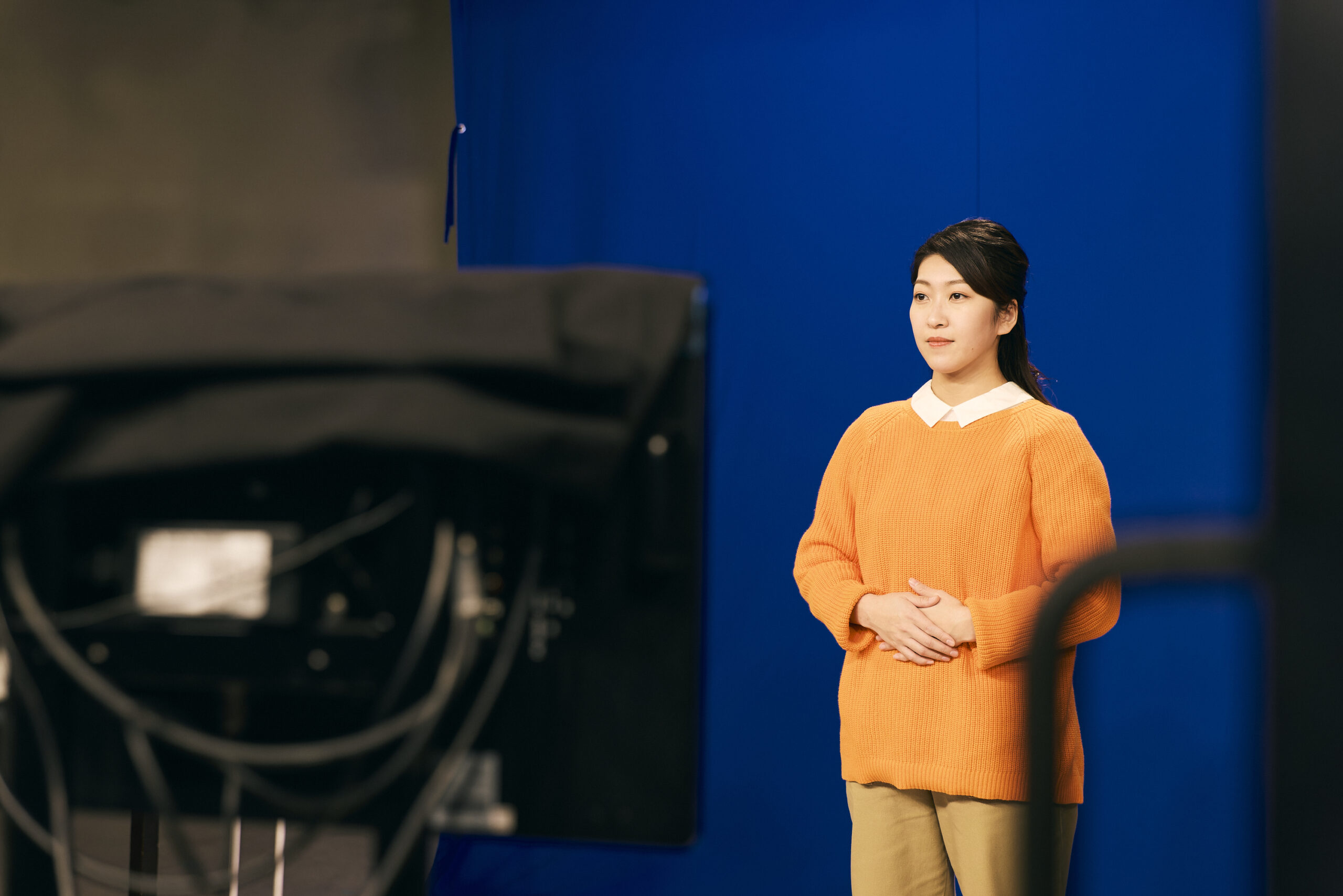

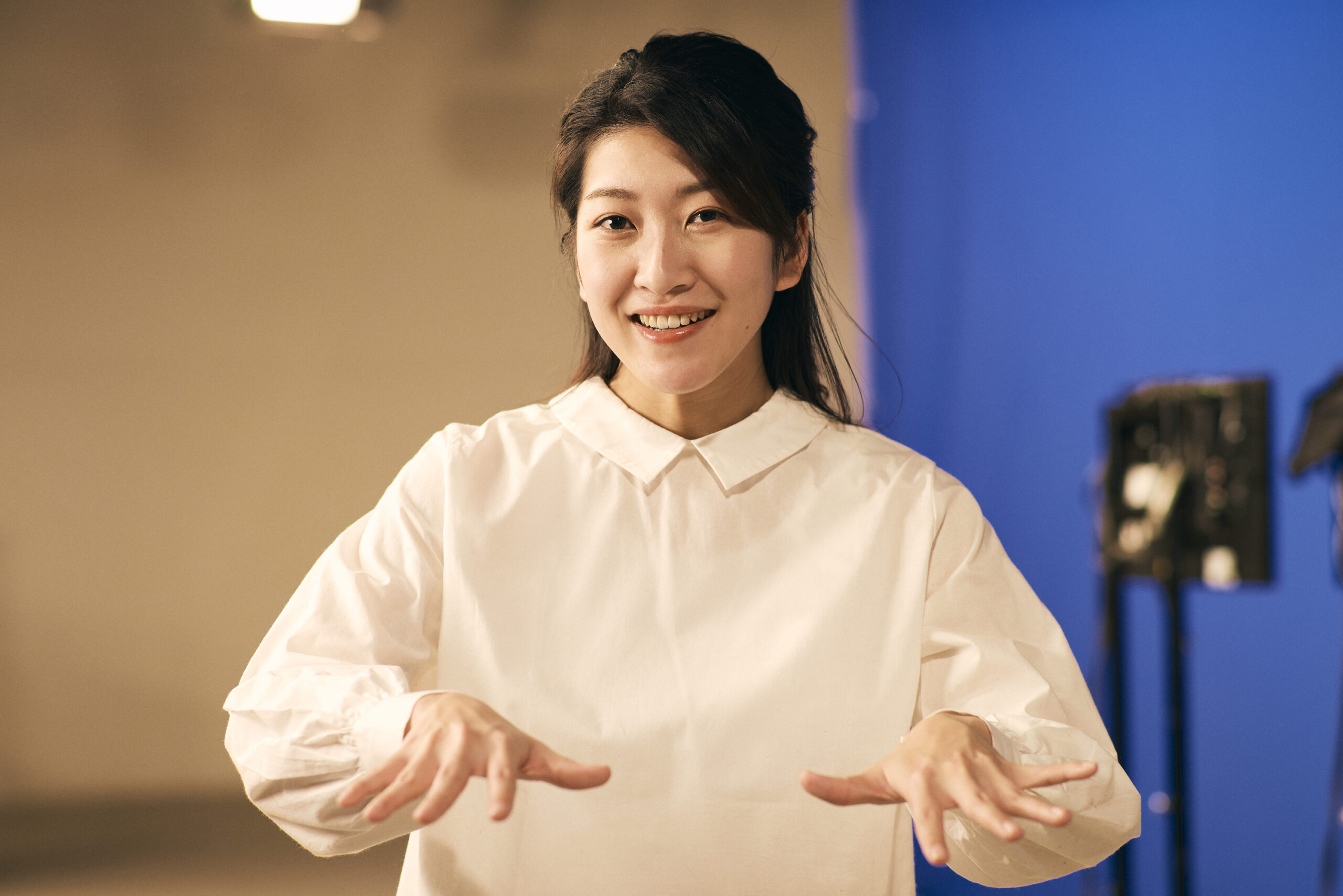
Eri Nasu / Born in Tokyo
Sign language entertainer/actor
After graduating from Nihon University College of Law with a degree in Newspaper, she studied abroad at Frontrunners in Denmark for two years from 2019 after working for Borderless Japan Co. She studied leadership and organizational activities of Deaf people.
After returning to Japan, under the title of “Sign Language Entertainer/Actor,” she has been active as a freelance sign language performer, translator, and actor, including “Visual Vernacular” performances, sign language promotion activities, international sign language She is also a sign language interpreter for NHK E-television’s “Sign Language Fun for Everyone TV,” and is involved in a wide range of activities such as the “Deaf Cho-kai,” an exchange program between the deaf and hearing people. She has also appeared on the stage in “Ugokuno Opus” and in Fuji TV’s “silent” in 2022.
Her family is a “Deaf Family,” all of whom are Deaf. Her father, Hideaki, and mother, Yoshiko, are actors and newscasters, and her younger brother, Motoki, works for a video production company.
Instagram:eri_ns.78
X:@Nsanakan78
2025.07.08
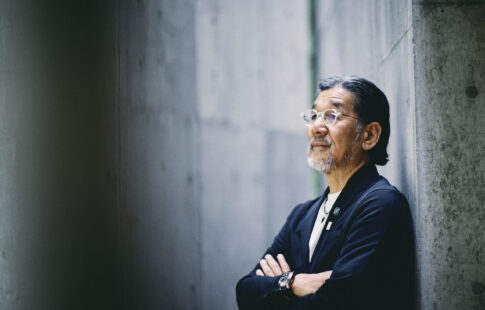
目次It all started with the worst MC of his lifeThe reality of being left out of information Issues highlighted […]
2025.07.08
目次It all started with the worst MC of his lifeThe reality of being left out of information Issues highlighted […]
2025.07.08
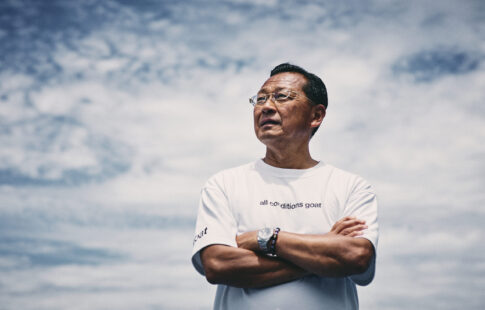
目次“An charismatic person appears…” Reforms to make athletes’ dreams come trueHakone or the w […]
2025.07.08
目次“An charismatic person appears…” Reforms to make athletes’ dreams come trueHakone or the w […]